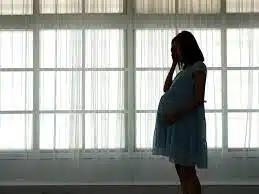
The new clinical guidelines in Singapore pay emphasis on maternal depression which is currently becoming an important public concern. Singapore healthcare system responds to the rising incidence of maternal depression by launching new protocols on perinatal mental health.
The new health care directives are announced by Dr. Janil Puthucheary at a medical conference held on friday. He proposes that the recent clinical guidelines are made while keeping in mind the target of reducing incidences of maternal depression that are further exacerbated by the estrangement unleashed by the pandemic.
One of the prominent women’s hospital reported a significant rise of 47 percent in case related to maternal depression between April 2021 and March 2021 compared to the similar period the previous year. The KK Women’s and Children’s association mentions how the spike that took place during the pandemic is mirroring the pattern in other countries across the world.
Ramifications of Maternal Depression

The maternal depression is a major concern for both the mother and the child. The doctors warn of it’s adverse consequences if left untreated, both during pregnancy and even after childbirth. As per the recent media reports, mothers who are mentally weak or vulnerable face a difficulty in bonding with their infants or are unable to function properly and in severe cases, they can even be at the peril of committing suicide.
As per Professor Helen Chen, head of the KKH’s Department of Psychological Medicine, maternal depression can also have adverse consequences for the child affecting his or her mental brain development, temperament, behavior and readiness for school.
Helen Chen further states that it is the need of the hour to address the situation while they stand on their toes to watch Singapore drown into an endemic phase.
Health Guidelines related to Maternal Depression

The central approaches taken into account to counter the severe effects of maternal depression mainly incorporates early screening, closely scrutinizing symptoms of anxiety and depression, preferably much before a women even gets pregnant.
The prominent recommendations as per the new guidelines about perinatal mental health includes increasing awareness, the availability of resources and advice in the preconception period. The report regards optimizing a holistic approach including lifestyle change and use of medications to deal with preconception mental health.
After giving birth, early screening and assessment becomes significant to deal with postnatal depression. Also finding necessary care, treatment and support for the women stands equally essential. The report recommends to cure perinatal trauma by increasing access to mental health support for women who experience medical trauma. Tailoring higher caregiver quality to both child and mother so as to fulfill their emotional needs and severe trauma becomes necessary.
The guidelines are essentially a part of the series laid by the main program of the SingHealth Duke-UNS Maternal and Child Heath Research Institute(MCHRI), which essentially works to bring a transformation in the national Heath in Singapore.
In contestation the lead investigator says that the program has been referring to the issue regarding burgeoning metabolic challenge faced by both mother and child since 2007. However, as per Professor Tan Kok Hian, who is the head of the Perinatal Audit and Epidemiology unit at KKH, these recent objectives enable them to map health concerns that have continued to remain remained overlooked ever since. The Singapore Perinatal Mental Health Guidelines currently aims to look through a different lens in a different area altogether that is, from perinatal mental health from preconception through up till postnatal.
In accordance with the recent report, the new regulations will be made accessible to all the healthcare professionals in Singapore via college of Obstetricians and Gynecologists.













